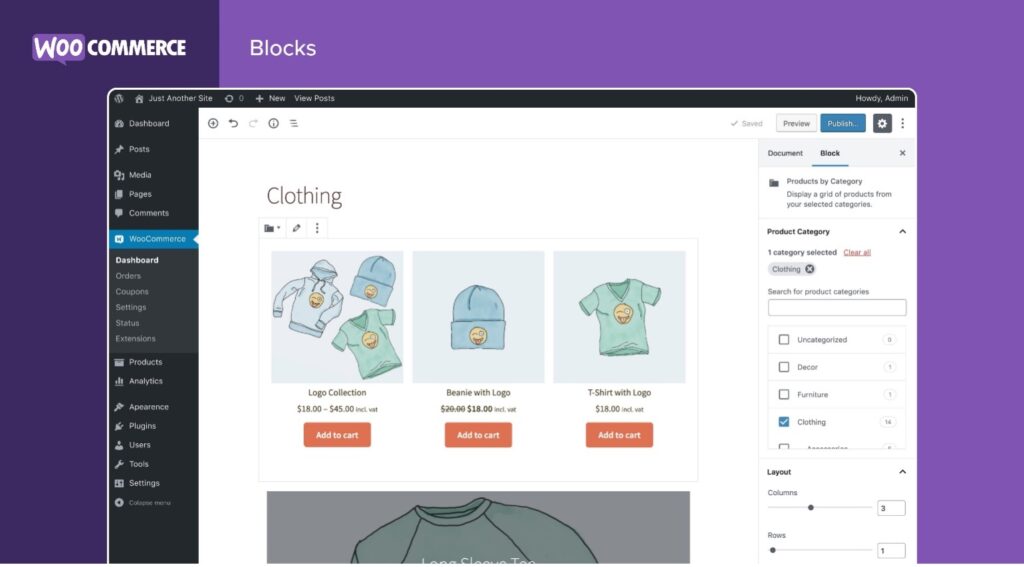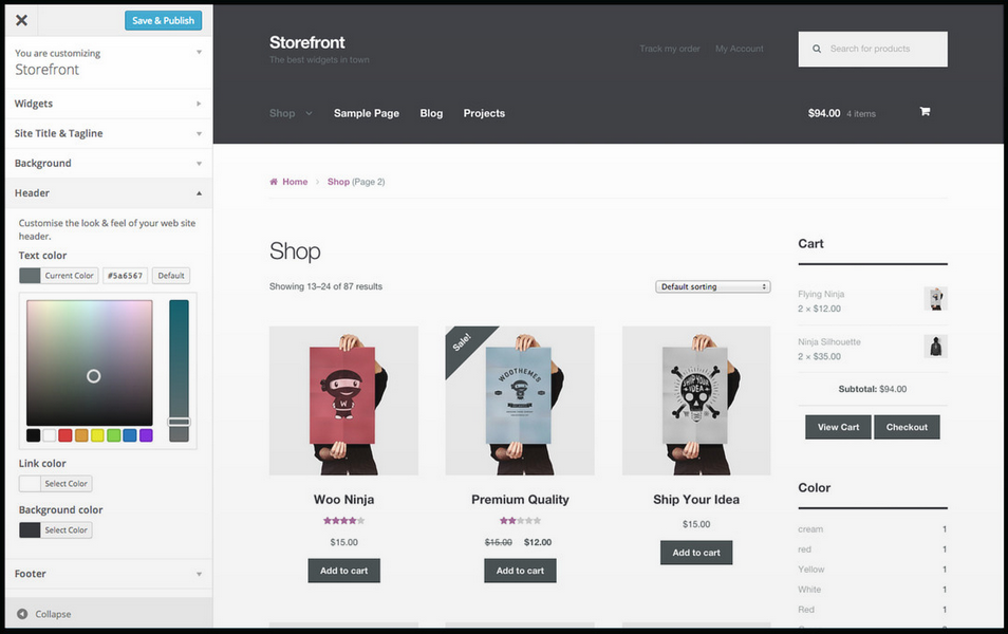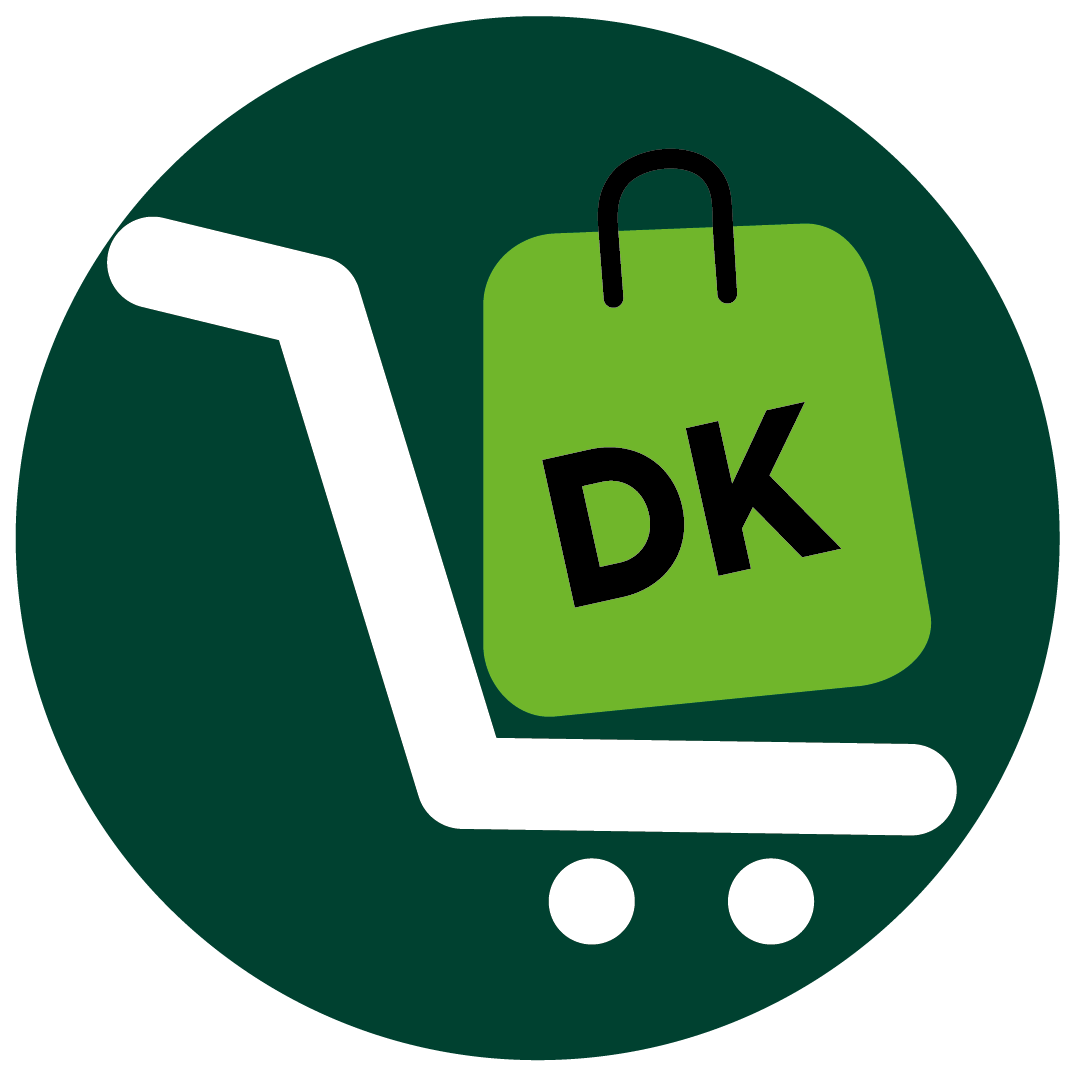Our Verdict
Shopify triumphs over WooCommerce.
When it comes to the battle of e-commerce platforms, Shopify takes the crown over WooCommerce. Shopify’s user-friendly interface, extensive app store, and hassle-free setup make it a top choice for entrepreneurs seeking a seamless online store. Its hosted solution means you won’t have to worry about technical intricacies.
Shopify’s robust security, automatic updates, and reliable customer support ensure your business stays up and running smoothly. Plus, its optimized hosting environment guarantees fast loading times, enhancing the user experience and boosting conversions.
WooCommerce, on the other hand, offers flexibility if you are already familiar with WordPress. Its open-source nature allows for extensive customization, but this demands more technical expertise. WooCommerce can be cost-effective due to its free core, but additional costs might arise for plugins, hosting, and security.
Shopify excels at scalability, accommodating businesses of all sizes. Its integrated payment system, seamless checkout process, and abandoned cart recovery tools boost your sales potential. In essence, Shopify takes the lead due to its comprehensive features, user-friendly interface, and unparalleled support. So, if you’re seeking a hassle-free, growth-oriented eCommerce journey, Shopify is the clear winner. Your business deserves the best, and Shopify delivers.
Here are the reasons why Shopify triumph over WooCommerce:
- Offers seamless scalability, allowing you to handle increased traffic and sales without worrying about technical aspects.
- Offers a vast selection of apps and integrations to enhance your store’s functionality, while WooCommerce may require more manual integration.
- Provides a fully hosted platform, eliminating the need for you to manage your own web hosting.
- Offer 24/7 customer support, ensuring you’re never alone when facing challenges.
Why Choose Shopify

Who Shopify Is Best For
Consider Shopify as your best ecommerce platform If you
- Own small business, Shopify can help you establish an online presence and expand your customer base.
- Develop an interest in dropshipping, Shopify takes care of the logistics, letting you focus on promoting your products.
- Create unique crafts or art; Shopify provides a platform to display and sell your creations.
- Gain insights into your store’s performance with detailed analytics and reporting tools.
- Want full customer support
Who Shopify Isn't Right For
Shopify might not be the best fit for you if:
- Requires advanced features, customizations, or intricate product variations for your business.
- Have extremely specific design requirements that go beyond Shopify’s themes and templates.
- Need complete control over your data and want to host your e-commerce store on your own servers.
- Target market heavily relies on specific local payment gateways that Shopify doesn’t support.
- Require extensive control over SEO elements, such as URL structures, meta tags, or schema markup.
- Need to run a multilingual ecommerce store
Why Choose WooCommerce

Who WooCommerce Is Best For
Think of WooCommerce if you:
- Looking to set up an online store
- Want to create an e-commerce site that aligns perfectly with your brand.
- Comfortable with technology and want more control over your online store’s design and functionality.
- Target a specific niche or have specialized products to sell.
Who WooCommerce Isn't Right For
Seek an alternative if you:
- Running a large-scale e-commerce business with intricate requirements like multiple stores, complex shipping setups, or extensive product variations
- Lack of technical skills
- Looking for a quick and hassle-free solution.
- Focus on a niche market with unique e-commerce requirements.
- Seek 24/7 customer support
Shopify vs. WooCommerce: Main Differences
Shopify | WooCommerce | |
Idea For | Create a Shopify store that curates and sells unique, handmade home decor items from local artisans around the world. Build a platform where fitness instructors can offer virtual classes and training sessions. | Develop a feature that offers customers complementary products or upgrades with a single click during the checkout process, boosting average order value. Develop a feature that allows customers to make purchases directly within social media platforms. |
Pricing | Require monthly subscription fee range from $32.00 to $92.00 | Cost $10.00 to $40.00 monthly |
Standout Features | Supports multiple payment gateways, ensuring safe and smooth transactions for your customers. Offers round-the-clock customer support through various channels, ensuring you can get assistance whenever you need it. | Improve your store’s visibility in search engine results. Offers flexibility to customize your online store to match your brand’s look and feel, and to add specific features as needed. |
Shopify vs. WooCommerce: Standout Features
Shopify Standout Features

- Simplify Management: Shopify offers an intuitive dashboard that simplifies the process of setting up and managing your online store, even for beginners.
- Customize Visuals: Create a unique and appealing storefront by customizing a wide range of templates to match your brand’s identity.
- Ensure Mobile Compatibility: Your store may seamlessly adapt to various devices, ensuring a consistent shopping experience for all your customers.
- Enhance Functionality: Explore a vast app store to integrate tools that enhance your store’s functionality, from marketing to inventory management.
- Provide Secure Payments: Shopify supports multiple payment gateways, guaranteeing secure and diverse payment options for your customers.
- Boost Visibility: Utilize built-in SEO features and marketing tools to optimize your store for search engines and implement effective marketing strategies.
- Scale Effortlessly: Grow your business confidently as Shopify scales to accommodate increased traffic and sales without a hitch
- Offer Support Anytime: Enjoy 24/7 customer support, ensuring quick resolution of technical issues and continuous store operation.
- Manage Inventory Efficiently: Streamline your inventory management by easily tracking stock levels and receiving alerts for low-stock items.
- Recover Abandoned Carts: Increase sales by utilizing automated recovery emails that remind customers about their abandoned carts.
- Expand Globally: Extend your reach internationally with multi-currency and multi-language support, tapping into a wider audience.
WooCommerce Standout Features

- Enable Seamless Selling: WooCommerce empowers you to effortlessly set up and manage your online store, providing a user-friendly interface to sell products and services.
- Customize with Flexibility: Tailor your store’s appearance and functionality to match your brand’s unique identity, thanks to a wide range of themes and plugins.
- Effortless Product Management: Easily add, edit, or remove products, including descriptions, images, prices, and variations, all through an intuitive dashboard.
- Robust Payment Options: Offer diverse payment gateways, from credit cards to digital wallets, giving your customers flexibility and security when making purchases.
- Secure Shopping Experience: WooCommerce prioritizes security by providing SSL encryption and PCI compliance, ensuring safe transactions for both you and your customers.
- Mobile-Friendly Design: With responsive themes, your store looks and works great on various devices, making it convenient for customers to shop on the go.
- Inventory Tracking Made Easy: Keep tabs on stock levels, receive alerts for low inventory, and automatically hide out-of-stock items to avoid disappointing customers.
- Geo-Location Support: Offer location-based products and services, targeting specific regions or even countries with personalized offerings.
- Analytics and Insights: Gain valuable insights into your store’s performance through built-in analytics, helping you make informed decisions and optimize your strategy.
- SEO Optimization: WooCommerce supports SEO practices, allowing you to enhance your store’s visibility on search engines and attract more organic traffic.
- Scalability and Growth: Whether you’re a small business or a large enterprise, WooCommerce scales with you, accommodating your needs as your business expands.
- Multilingual Capabilities: Reach a global audience by translating your store into multiple languages, catering to diverse customer preferences.
Pros and Cons of DSers

- Pros
- Allows you to create a unique and personalized online store that reflects your brand identity.
- Offers a variety of themes and templates to create a unique and visually appealing store.
- Supports numerous payment gateways, offering flexibility for transaction processing.
- Provides reliable hosting, SSL encryption, and security features to protect customer data.
- Offers tools and features to optimize your store for search engines, improving your online visibility.
- Allows you to add extra features and functionality to your store as your business grows.
- Cons
- Imposes transaction fees on sales
- Requires monthly subscription payments.
- Limits control over advanced customization
- Relies heavily on third-party apps for extended features.
- Restricts certain SEO optimization capabilities
- Presents challenges in migrating data to other platforms.
- Complicates international selling due to tax and currency considerations.
Pros and Cons of WooCommerce

- Pros
- Simplifies setup
- Enables customizability
- Integrates with WordPress
- Facilitates scalability
- Offers diverse payment options.
- Enhances SEO-friendliness
- Engages an active community
- Provides cost-effectiveness
- Cons
- Requires self-hosting
- Presents complexity for beginners
- Depends on plugins for functionality.
- Demands maintenance and updates.
- Offers limited official support
- Faces scalability challenges
- Raises security concerns.
Shopify vs. WooCommerce: Customer Reviews
Shopify receives high marks for its seamless setup process, making it accessible for you to establish your online stores. Users appreciate the extensive app ecosystem available on the Shopify App Store, which allows them to enhance their stores with various functionalities. The reliable hosting infrastructure contributes to positive feedback, ensuring fast page loading speeds and minimal downtime for a smooth shopping experience.
Customers also express satisfaction with Shopify’s responsive customer support, which promptly assists in resolving issues. The mobile-friendly nature of Shopify enables store owners to manage their businesses conveniently while on the move.
On the flip side, some customers find Shopify’s transaction fees, especially for external payment gateways, to be a drawback that could impact profitability. While Shopify offers themes for design, some customers note limitations in customization options, desiring more design flexibility. A handful of customers also faced challenges when migrating their stores from other platforms to Shopify, encountering issues with data transfer and compatibility.
Shifting focus to WooCommerce, customers commend its flexibility in customization thanks to its open-source nature, which empowers them to tailor their online stores extensively. Many customers find the cost-effectiveness of WooCommerce appealing, as the core plugin itself is free, making it a budget-friendly choice for individuals and small businesses.
The seamless integration of WooCommerce with WordPress, a popular CMS, is seen as a positive aspect, enabling users to combine content and commerce effectively. The versatile range of plugins available for WooCommerce allows customers to expand their store’s capabilities without requiring advanced technical skills. The supportive and active user community also garners positive feedback for its valuable assistance and guidance.
However, some customers note a learning curve associated with WooCommerce’s setup and management, particularly for beginners. Some customers are also concerned with WooCommerce security, emphasizing the need for regular updates and vigilance to prevent potential vulnerabilities. Additionally, some customers report delays in obtaining assistance for technical issues.
Shopify vs. WooCommerce Competitors
BigCommerce
BigCommerce emerges as a powerful rival in the e-commerce arena, standing shoulder-to-shoulder with Shopify and WooCommerce. With a user-friendly interface catering to businesses of all sizes, BigCommerce excels in versatility. Its array of features, suitable for both small enterprises and large corporations, coupled with robust SEO capabilities, ensures a compelling alternative.
This platform’s flexibility grants you the freedom to mold your online presence effectively. In the realm of e-commerce options, BigCommerce firmly establishes itself as a compelling alternative to both Shopify and WooCommerce.
Magento
Consider Magento as an alternative to both Shopify and WooCommerce. Magento, popularly known for its scalability and customization options, is a great choice for you if you are looking for advanced control over your online store. However, it might require a higher level of technical expertise.
Wix eCommerce
This e-commerce platform offers a user-friendly experience through its drag-and-drop website builder, catering well to novices. Its intuitive interface and assortment of templates make it particularly suitable for beginners. However, it’s worth noting that Wix eCommerce might come up short if you are seeking more intricate e-commerce functionalities due to potential limitations.
Squarespace
Squarespace offers more than just a website builder—it includes e-commerce capabilities ideal for small enterprises. While boasting visually appealing designs, it might lack certain advanced e-commerce attributes. This makes it a viable alternative to Shopify and WooCommerce for you if you are seeking an elegant storefront with basic online selling features.
Pro Tips
- Utilize Shopify’s extensive range of customizable themes to create a visually appealing and user-friendly online store. Choose a theme that aligns with your brand and offers a smooth browsing experience.
- Craft detailed and engaging product descriptions that highlight the benefits, features, and unique selling points of your products. Use high-quality images and videos to showcase your products from different angles.
- Ensure your Shopify store is mobile-responsive. A significant portion of online shoppers use mobile devices, so your store should provide a seamless shopping experience across various screen sizes.
- Take advantage of Shopify’s app store to enhance functionality, but be selective. Choose apps that truly add value to your store, such as SEO optimization, social media integration, and customer reviews.
- Implement strong SEO strategies to improve your store’s visibility in search engines. Use relevant keywords, optimize meta titles and descriptions, and regularly update your content to maintain SEO relevance.
- Opt for reliable and high-performance hosting for your WooCommerce store. Fast loading times and server stability are crucial for a positive user experience.
- Leverage WooCommerce’s capabilities to offer personalized shopping experiences. Implement features like product recommendations, dynamic pricing, and tailored product bundles based on customer behavior.
- Offer a variety of secure payment gateways to cater to different customer preferences. This includes credit and debit cards, digital wallets, and PayPal, ensuring a smooth checkout process.
- Take advantage of WooCommerce’s analytical tools to gain insights into customer behavior, sales trends, and conversion rates. Use this data to make informed decisions and optimize your store’s performance.
Recap
Ultimately, the choice between Shopify and WooCommerce depends on your business needs and technical comfort level. Choose Shopify if you value ease of use and comprehensive support, even if it comes with slightly higher costs. Opt for WooCommerce if you want more control and are willing to handle the technical aspects yourself. Both platforms can create successful online stores, so it’s about finding the right fit for your specific goals and resources.
Remember to make a choice that aligns with your business goals and your comfort level with technology. Shopify is your ally for quick setup and support, while WooCommerce empowers you to shape your store’s destiny with more hands-on involvement.














